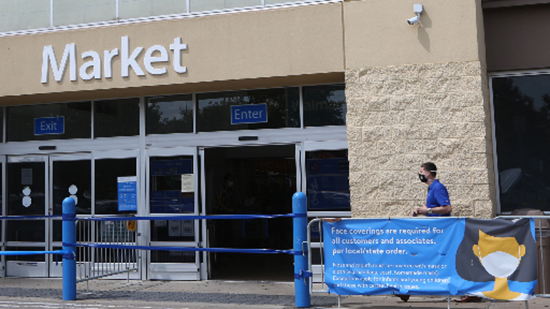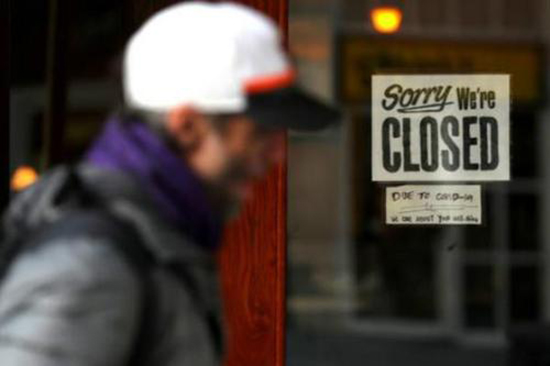Abstract:Due to the impact of the new crown pneumonia, the United States is setting off a wave of corporate bankruptcy, and thousands of retailers, energy companies and other companies have been hit hard. In New York City, even one-third of small businesses may never reopen. According to statistics, US corporate bankruptcy applications have surged by 43% over the same period last year.
Due to the impact of the new crown pneumonia, the United States is setting off a wave of corporate bankruptcy, and thousands of retailers, energy companies and other companies have been hit hard. In New York City, even one-third of small businesses may never reopen. According to statistics, US corporate bankruptcy applications have surged by 43% over the same period last year.
More than 10,000 stores have closed in the United States
According to data from legal services company Epiq Global, as of June 30 in the first half of this year, more than 3,600 US companies have filed for bankruptcy protection, a 26% increase from the same period last year. In June alone, as the epidemic rebounded in various parts of the United States, the economic recovery stalled, and bankruptcy filings for US companies surged by 43% over the same period last year.
Brands that declared bankruptcy this year include children-themed restaurant Chuck E. Cheese, Car Rental Company Hertz, Fashion Group J. Crew, department store J.C. Penney and Neiman Marcus, they are just a small part of the wave of bankruptcies since the outbreak.

At the same time, many financial experts believe that the worse situation is yet to come. Among them, retailers and energy companies are particularly vulnerable. For example, companies such as oil producer Lonestar Resources and clothing retailer Tailored Brands have recently skipped bond payments, a common manifestation of corporate financial distress.
Forbes reported that so far this year, more than 10,000 stores have closed in the United States. This data exceeds the annual level of the past few years. Forbes data shows that the number of closed stores in the United States in 2019 was 9,879. In 2018 There were 5700 in the whole year and 8000 in 2017.

In the second half of this year, store closures will obviously accelerate further. According to Coresight's estimates, 25,000 stores in the United States may be permanently closed this year, of which 55% to 60% will be in US shopping malls.
In New York, most small businesses have cash reserves of less than three months. This means that funds for restarting, repaying rent and purchasing inventory have been exhausted, and thousands of business owners are at risk, especially those of ethnic minorities. "Authors Kathryn Wylde (Kathryn Wylde) and Natasha Avanessians (Natasha Avanessians) wrote.
Bankruptcy filings are expected to increase, U.S. retail may drop by 10% this year
According to industry organizations, the overall US retail sales will fall by 10% this year, and they will not be able to return to their pre-epidemic levels until 2022. Although e-commerce sales are expected to increase to a certain extent, shopping malls that mainly rely on physical income will still be affected. Some analysts (from Coresight Research) predict that in the next three to five years, there will be a quarter of the United States. The mall will disappear completely.

"As the government's rescue plan for stabilizing the economy begins to expire, filing for bankruptcy provides protection for families and businesses facing increasingly severe financial distress." said Amy Quackenboss, executive director of the Bankruptcy Association. We expect that (bankruptcy) applications will start to increase as a result."
The current bankruptcy rules are designed to help companies complete bankruptcy procedures faster and reduce paperwork costs. Bankruptcy does not necessarily mean the demise of the business. Some companies can achieve debt and business restructuring through bankruptcy protection, thereby becoming a more competitive company.
